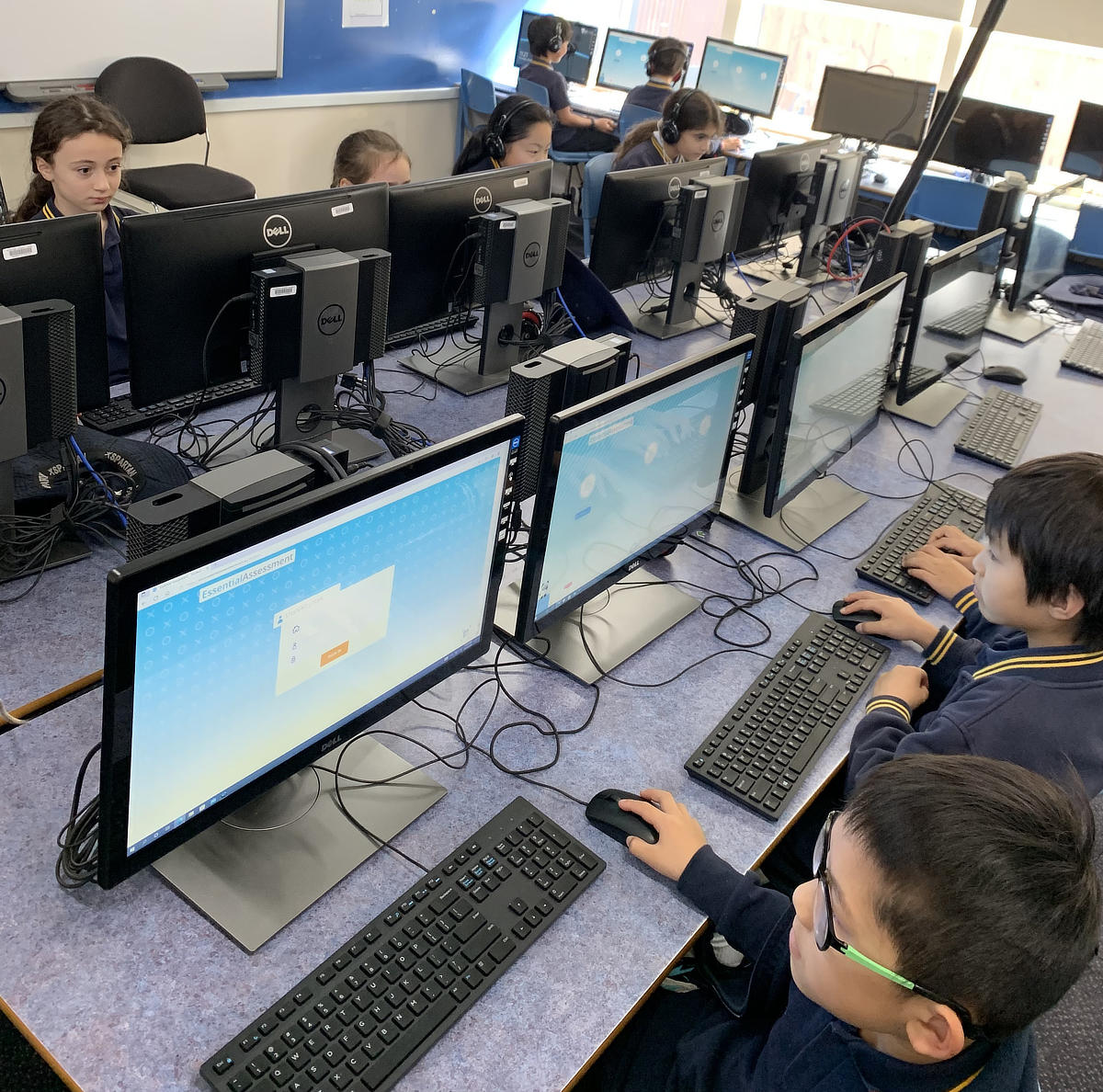Learning
Foundation
Welcome to your child’s first year at school. Our Foundation classrooms are located in the Early Learning Centre, where our teachers aim to consistently provide children with a stimulating environment in which they feel happy and secure. The development of independence, responsibility and co-operation is encouraged in all Foundation students and teachers cater for individual needs to ensure that students have a positive first year at school.
The Foundation Literacy program focuses on introducing and establishing the core areas of reading, writing, spelling and speaking and listening.
Students start the year with an introduction to letters, handwriting, simple words and phonological awareness. Students then build upon this foundation with the addition of grammar and sentence formation. Students explore a variety of text types, and are always encouraged to ‘have a go’ with their writing.
During Reading sessions, we nurture a passion for literature by exposing the students to a variety of text types. Through independent and shared reading, and book discussions, students gain confidence to approach reading through a range of strategies. Students visit the library each week to develop an appreciation of literature and foster a love of reading.
Students gain confidence and skills in speaking and listening through class discussions, lesson reflections, role playing, performances and Show and Share sessions. Students are encouraged to voice their opinions and ideas throughout the day.
Mathematics helps us to make sense of the world around us. It is more than ‘sums’ and learning numbers. It involves skills that we use throughout life. The emphasis in Foundation is on basic numeracy skills and understanding with a ‘hands on approach’. We begin the year by exploring the numbers 0 – 10 in detail, with lots of counting, repetition, and games. We teach a variety of strategies to develop problem solving skills and an understanding of mathematical reasoning. The three areas of Mathematics that we focus on are: Number and Algebra, Measurement and Geometry, Statistics and Probability.
The instruction of the curriculum is presented in a variety of ways, including modelled teaching, hands-on activities, group work, games, and the use of digital technologies
Students learn through an inquiry approach where they are involved in recognising and defining problems, making observations, predictions and generalisations, organising information, drawing conclusions and developing a variety of other thinking skills.
Our unit of work topics include:
- School and Me (History Unit) – Topic Question: Who am I?
- Alive and Amazing! (Plants and Animals – Science Unit) – Topic Question: Is it Living?
- Fairy tales (Design and Technologies) – Topic Question: How do materials change?
- The World Around Us (Geography unit) – Topic Question: Where do I belong within the world?
Students engage in a variety of stimulating and meaningful incursions and excursions which link closely to our units of work.
The students also enjoy a wealth of experiences and events, including Grandparents’ Morning, Dress Up as a Family Member Day, 100 Days of School celebrations and Book Week.
Buddies
Foundation students are assigned a Year 5 Buddy. Buddies meet weekly and participate in structured activities designed to foster this unique relationship. This valuable and successful program develops close bonds between children at both ends of the school.
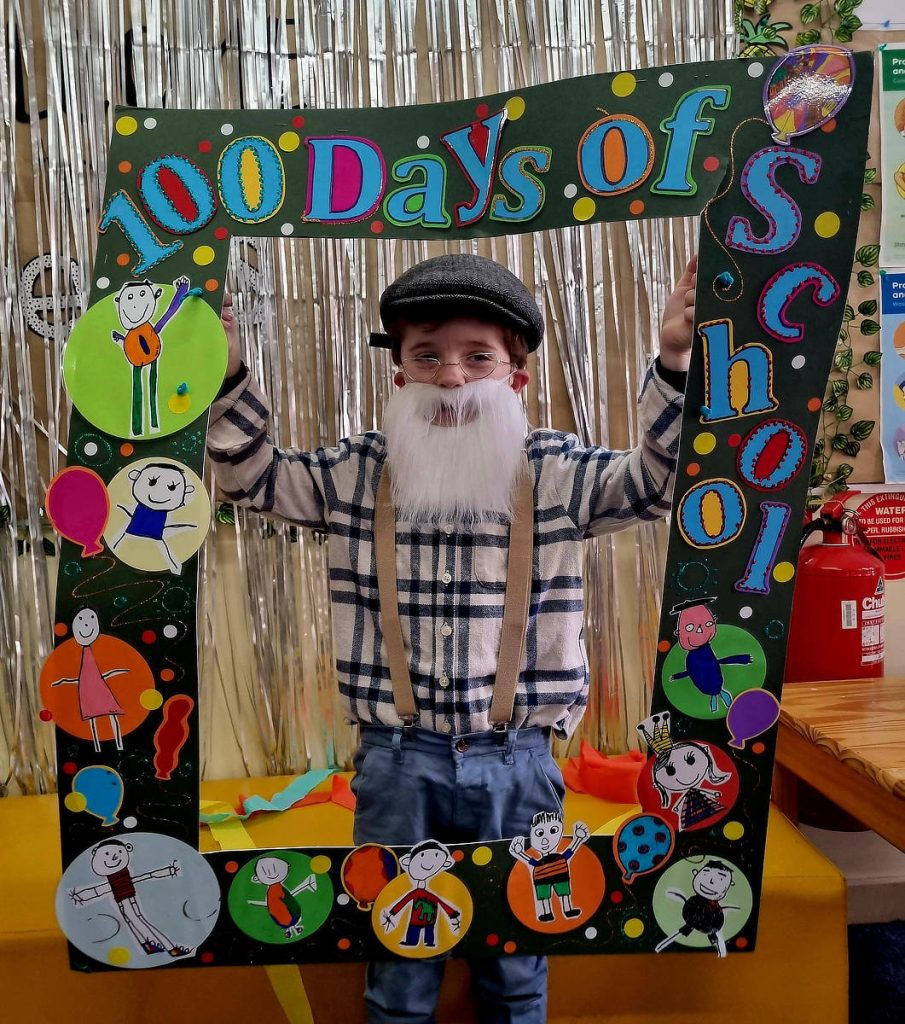
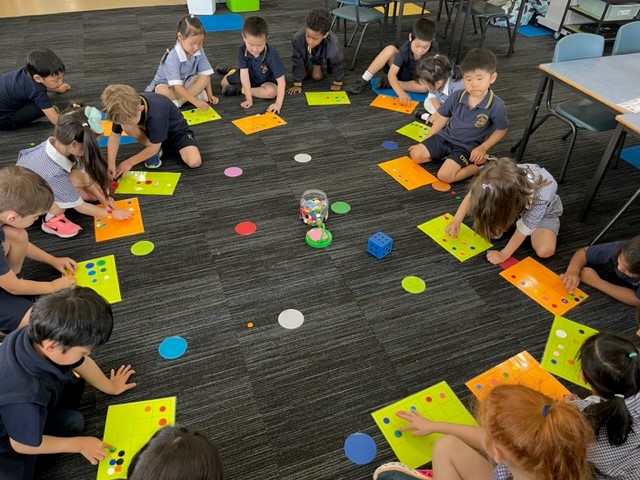
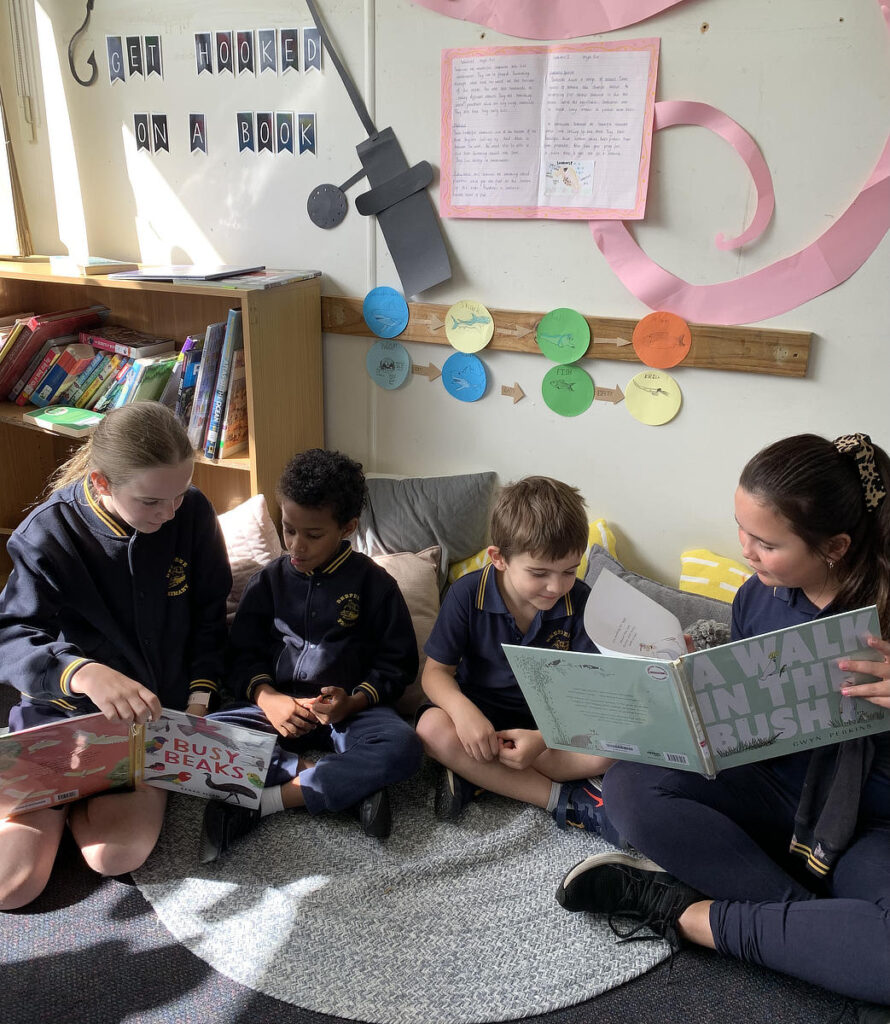
Foundation 2026 Transition
Information Evening for Enrolled Families
Term 4 2025
Thursday, October 9th
6pm – 7pm
Transition Session 1
Term 4 2025
Thursday, November 13th
9:15am – 11:15pm
Learning about our School
Students will need to be dropped off at the Early Learning Centre and picked up at 11:15am
Please bring a labelled bag with a snack and water bottle.
Transition Session 2
Term 4 2025
Tuesday, November 25th
9:15am – 11:15pm
Story Adventures
Mathematics Masterminds
Students will need to be dropped off at the Early Learning Centre and picked up at 11:15am
Please bring a labelled bag with a snack and water bottle.
Transition Session 3
Term 4 2025
Tuesday, December 9th
9.15am – 1:00pm
Foundation 2026 Orientation Day
Orientation Day
Meet your teacher and classmates for 2026
Students will need to be dropped off at the Early Learning Centre and picked up at 1:00pm.
Please bring a labelled bag with a snack, lunch and water bottle.
Levels 1 & 2
Welcome to Levels One and Two at Deepdene Primary School.
We aim to provide a happy, inclusive and engaging learning environment for all students. We value collaboration, authentic learning experiences and making connections to our local and international communities. Learning programs incorporate the following principles:
- Taking responsibility for learning and behaviour
- Accepting challenges and taking risks while learning
- Being presented with a wide range of evidence-based and high-impact teaching strategies
- Respect for self,others, learning spaces and our school
Wellbeing in Level One and Two is planned and taught around everyday scenarios that might occur in students’ lives. Students discuss and share how challenges may be overcome and they learn coping and management strategies, such as increased emotional literacy, self awareness and empathy for others. The program, which is run on a weekly basis, develops social and emotional learning and assists students with demonstrating positive social behaviour that they can apply in their everyday life.
In Level One and Two students are provided with the opportunity to explore and investigate digital technologies in our learning programs. Students are introduced to common digital systems (Beebots/coding, word processing, navigating computer skills etc.) and learn to identify how these systems are used to meet specific purposes.
In Reading, students focus on developing a range of reading comprehension strategies. They apply these strategies using a variety of fiction and non-fiction texts. Students participate in independent reading with a specific focus for each session. They are given time to reflect on their learnings at the end of each session. Students read for different purposes; for comprehension, performance and fluency.
In Writing, students focus on different genres including descriptive writing explanations, procedures, persuasive texts, narratives, poetry, retell and reflective recounts. They apply their knowledge of correct grammar including, upper- and lower-case letters, compound words, alliteration, prefixes and suffixes and complex sentences in their writing.
Students regularly practise their Speaking and Listening skills through reflection and sharing time at the end of each Literacy session. This develops students’ confidence in speaking to groups of people.
In Levels One and Two we cover all areas of Mathematics using a hands on approach and a variety of concrete materials. The areas include Number and Algebra, Measurement and Geometry and Statistics and Probability. Students are exposed to various mental and written strategies to solve problems. Our Mathematics program will help students to make sense of the world around them. The emphasis is on linking learning to real life experiences. All areas of Mathematics use rich tasks and open-ended problem-solving to improve student learning and understanding of concepts.
In the development of these units teachers consider individual needs and experiences of the students and the content and processes related to each learning area. Students are encouraged to apply various thinking strategies. Partnership, collaborative groups, problem solving and the development of independent work habits are emphasised at this level. The program is structured as follows;
Even Years:
- A Safe, Healthy and Special Me (Health)
- Who Lives There? (Biological Science)
- Where is the Past in the Present? (History / Geography)
- All Mixed Up (Chemical Science)
Odd Years:
- Looking After our Environment (Biological Science / Sustainability)
- Water Works (Earth and Space Science / Sustainability)
- Connections to Places (History / Geography)
- How does your Garden Grow? (Biological Science)


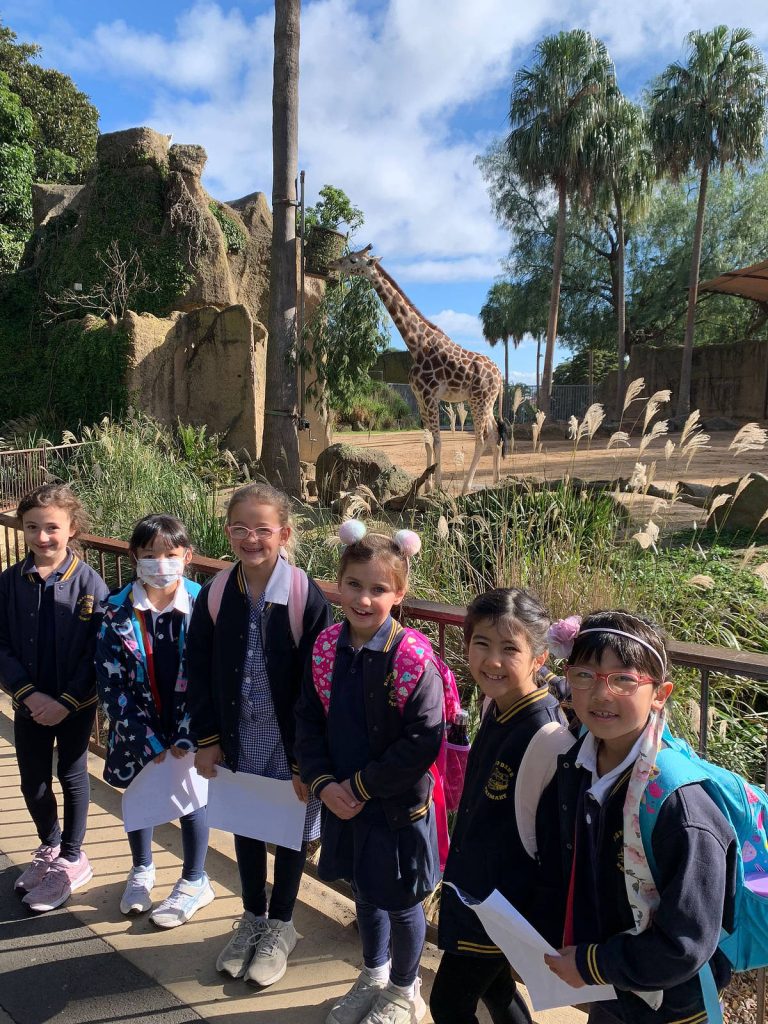
Levels 3 & 4
Welcome to Level 3 and Level 4 at Deepdene Primary School.
Students at this level are becoming more independent learners and actively participate in a variety of programs. Teachers encourage students to develop good study habits and organisational skills.
Wellbeing in Level 3 and 4 is planned and taught based on the Resilience, Rights and Respectful Relationships program. These are hands-on lessons which teaches the students social skills needed in everyday life. They use these skills when they participate in weekly sports games in Level 3 and 4 Sport, which promotes our sporting values; honesty, cooperation, and determination.
At this level, students are also given the opportunity to participate in Festival Singers, Ensembles, Chess Club and Lunchtime Clubs. Each class has two Student Representative Council (SRC) members who meet regularly with teachers to organise and discuss charity fundraising days at school.
Digital Technology: Students will develop skills in using mouse and keyboard/typing skills; word processing skills, coding, internet research, and other skills to support the classroom curriculum. Students learn about cyber-safety and explore different safety issues including cyberbullying, protecting personal information and sharing content.
Reading – Students will be introduced to a wide range of texts, both fiction and non-fiction to begin to discover the wide range of genres that are available.They will engage with texts by using skills such as predicting, questioning and visualising. This fosters the students’ connection and enjoyment of reading.
Writing – Students will learn to express information, ideas and feelings through a variety of texts including stories, poetry, plays and reports. They will learn about appropriate language to use for different text types and develop skills in proofreading. The SMART Spelling Program is being used across all year levels. It is a program that has been designed to teach spelling explicitly and systematically.
Speaking and listening – Speaking and listening is crucial for practising and embedding new vocabulary and concepts. Teachers incorporate a variety of activities to develop even further their students’ listening and speaking skills. Such as: listening and speaking games, debates, class presentations based on class topics, role playing and readers theatre.
Students will learn all areas of Mathematics and will use rich tasks, open-ended problem-solving and hands-on activities to improve their learning and understanding of key concepts.
Number and Algebra – Students will be involved in activities designed to expand their knowledge of numbers by calculating, comparing, estimating and recording.
Measurement and Geometry – Students will be encouraged to use their number knowledge to solve problems involving applied concepts such as length, area, capacity, volume, mass, money and time.
Statistics and Probability – The children will also learn the skills of collecting, organising, representing and interpreting data through the use of tables and graphs.
Even Years
Healthy Habitats (Biological Science)
Communication – Let’s Talk (Design and Technologies/ Speaking and Listening/ Personal and Social Capabilities/ History)
Gizmos and Gadgets (Design and Technologies/ Physical Science)
First Peoples, First Contact (History)
Odd Years:
What’s the Matter? (Chemical Science/ Physical Science)
Sustaining Our World (Biological Science/ Sustainability)
Australia: Our Place in the World (Geography)
Our Spinning Planet (Earth and Space Science)
During these units of work, students engage in a range of incursions and excursions to further support and extend classroom learning. During the year, we have participated in a Solids, Liquids and Gases incursion, a Scienceworks excursion, Earth Crusaders incursion, Yarra Valley Water incursion and STEM related programs.
Camp:
Level 3 students participate in a three day camp at Arrabri Lodge in Warburton. Level 4 students participate in a three day camp at Phillip Island Adventure Camp. Camps are always a highlight of the year and help to promote independence, resilience and teamwork.
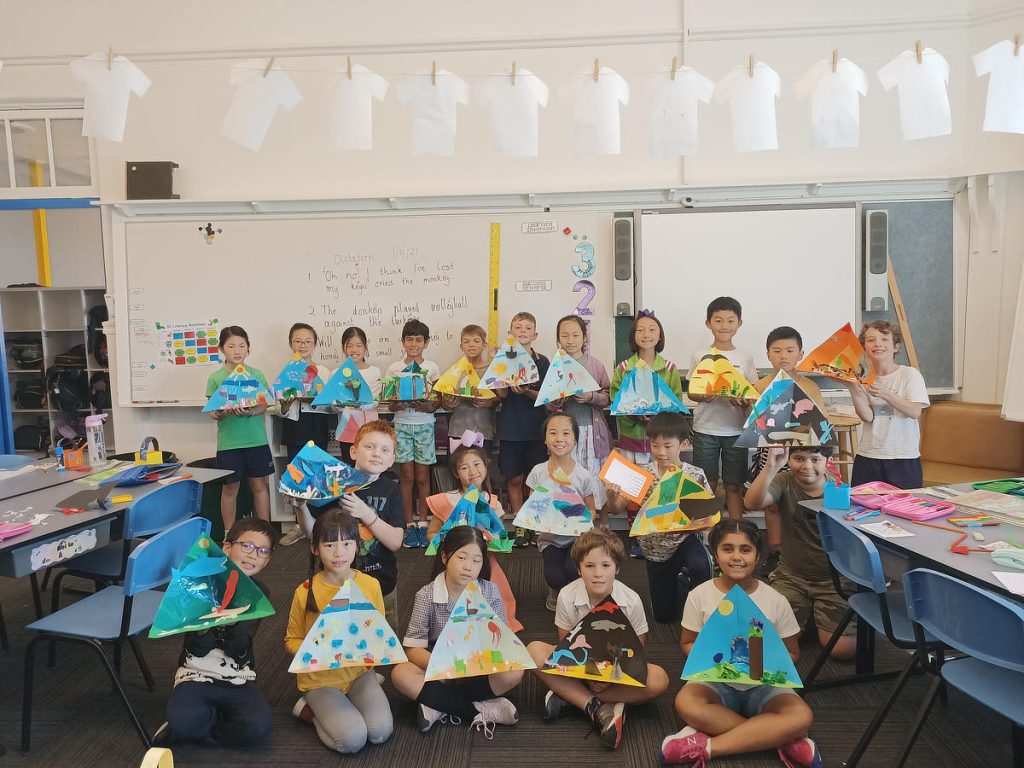
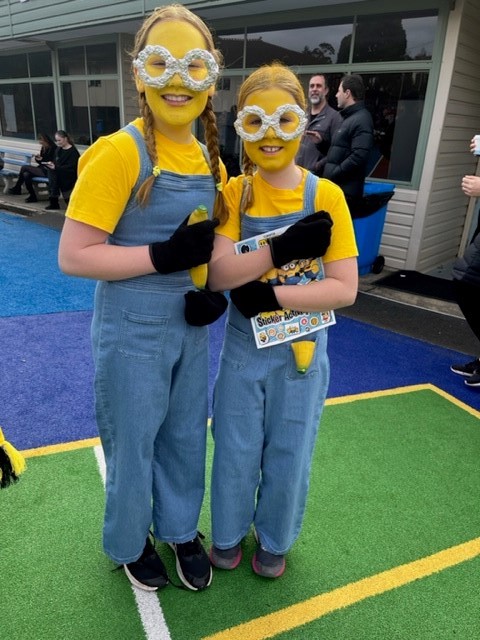


Levels 5 & 6
Welcome to Level 5 and Level 6 at Deepdene Primary School.
Level 5 and Level 6 is a wonderful time for the students to embrace leadership and responsibility as they are considered to be the student leaders of the school.
In Reading, students are taught how to compare and contrast information in different texts, explaining literal and inferential meaning. They learn how to effectively analyse and explain how language features, images, and vocabulary are used by authors to represent characters, ideas, and events. Students are immersed in our SMART Spelling program where they develop their continuing phonological and phonemic knowledge, learning how to apply their knowledge to decode familiar and technical words in increasingly complex situations.
In Writing, students use language features to show how ideas can be expressed and extended and used for emphasis to support a particular point of view. Students demonstrate their understanding of grammar and writing devices to make considered choices from an expanding vocabulary, enhancing cohesion, continuity and structure in their writing.
Speaking and Listening is regularly practised in the classroom through the presentation of homework projects, debates and everyday opportunities for students to share and celebrate their work with their peers. Throughout the year, there are a multitude of opportunities for students to practise their presentation skills. Level 5 students prepare speeches in preparation for leadership opportunities and Level 6 students write and memorise speeches for their graduation ceremony.
Our Numeracy program ensures students make connections with Mathematical concepts and are equipped to apply these to everyday life. In Level 5 and 6 we continue to explore Mathematical concepts using hands-on materials. This helps develop critical thinking and analytical skills. Students are immersed in activities and tasks that allow them to develop a greater understanding of open-ended problem solving. These rich tasks ensure students are well prepared for secondary school Mathematics.
The Level 5 and Level 6 teachers work together to plan comprehensive and engaging units of work which run over a two year cycle.
- Our Journey – Why do people migrate?
- Government – How and why do we vote?
- Economics – What does it mean to have enough?
- Restless Earth – How do natural disasters affect our planet?
- Food and Fibre Production – How do primary industries produce our food and fibre?
- Experimental Science – How can we plan and carry out a scientific experiment?
- Colonial Australia – How has Australia changed since colonisation?
- Our World – How can we care for our school environment?
- It’s Electrifying – How do electrical circuits work?
Digital Technologies
In Level 5 and 6, students use digital technologies to research projects, explore coding, and publish their work in creative ways. We teach students to become confident and creative developers of digital solutions through the application of information systems and specific ways of thinking about problem-solving.
Buddy Program
Deepdene Primary School facilitates a buddy program. Every student in Level 5 has a buddy student in Foundation. Once a week, they collaborate and partake in fun activities that foster cooperation, creating close bonds whilst encouraging leadership skills amongst our older students.
Camps
The Level 5 camp takes place at the Waratah Beach Camp. Students take part in a vast range of activities including surfing, climbing, exploring ecosystems, a star constellation walk and more. The camp is located two and a half hours from Melbourne near Wilsons Promontory and is one of the most memorable and exciting school camping locations in Victoria.
Level 6 students explore The City of Melbourne for a week. This tour is an incredible highlight of their last year of primary school. It fosters independence, collaboration and problem solving in unfamiliar environments. They use public transport to visit iconic landmarks such as the Australian Centre for Moving Image (ACMI), the Melbourne Cricket Ground, the National Sports Museum, the Aquarium, and the National Gallery Victoria.
Interschool Sport
During Term One and Two students in Level 5 and 6 participate each Friday in Interschool Sports, where they compete against other schools in the Kooyong District. Term One offers Kanga Cricket, Teeball, Hot Shots Tennis and Volleyball. Term Two offers AFL, Soccer, Netball and Softball. Each week students play at home or away. Home games are played at Deepdene Primary School (or Reservoir Reserve depending on the sport) and students take the bus for away games to play at different schools and parks. Interschool sports provides an exciting environment for students to experience playing competitive sport.
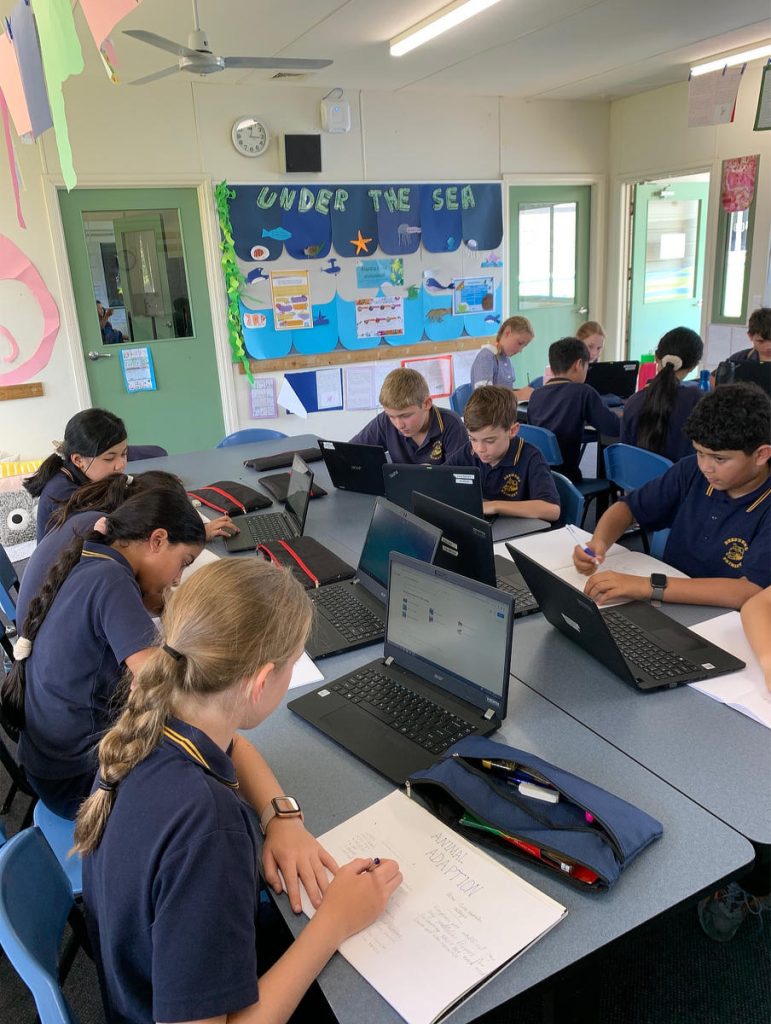
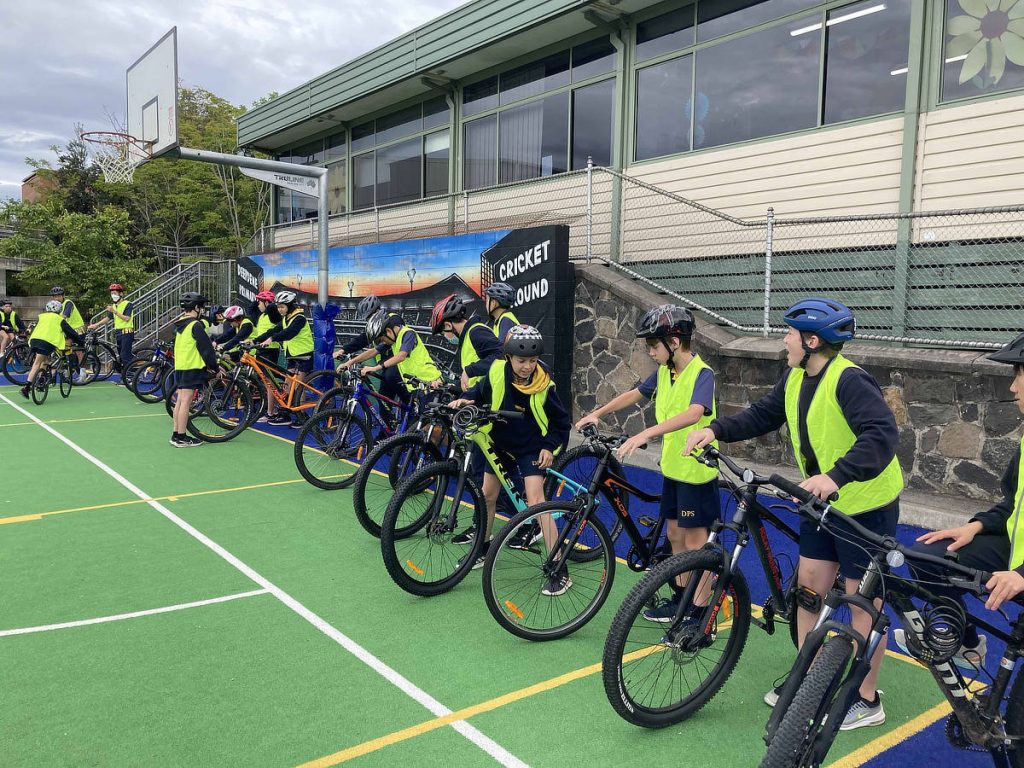
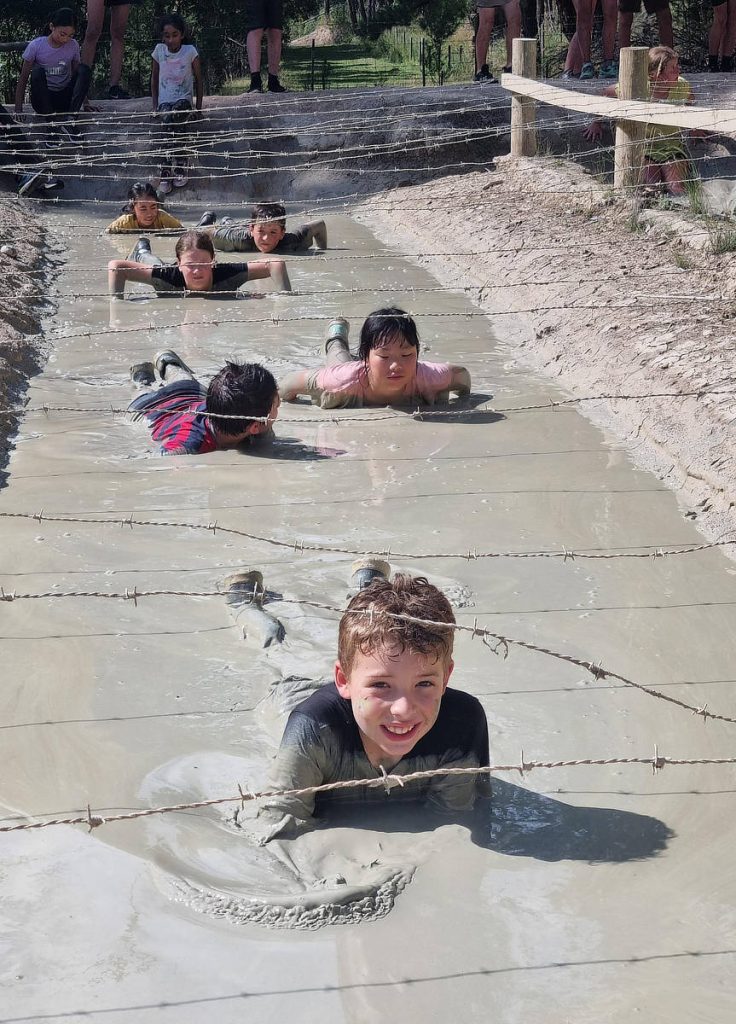
Student Wellbeing
At Deepdene Primary School we believe student wellbeing is at the heart of learning. We use an evidence-based, whole-school approach to wellbeing, through the Resilience, Rights, and Respectful Relations (RRRR) program. The program is used to develop student’s social, emotional, and positive relationship skills. Topics within our wellbeing program include, Emotional Literacy; Personal Strengths; Positive Coping; Problem Solving; Stress Management; Help Seeking; Gender and Identity; and Positive Gender Relationships. It starts in Foundation and continues through to Year 6, building on the skills required each year for a healthy and happy student.
Respectful Relationships
Respectful Relationships is a Department of Education and Training initiative and is part of our whole school approach to wellbeing at Deepdene Primary School.
Respectful Relationships education is a core component of the Victorian Curriculum from Foundation to Year 12 in all Government schools. The Royal Commission into Family Violence identified the critical role that schools and early childhood education have in creating a culture of respect to change the story of family violence for future generations.
Everyone in our community deserves to be respected, valued and treated equally. We know that changes in attitudes and behaviours can be achieved when positive attitudes, behaviours and equality are embedded in our education settings. This evidenced based approach leads to positive impacts on student’s academic outcomes, their mental health, classroom behaviour, and relationships between teachers and students.
In the primary years, Respectful Relationships is taught as part of the Health and Physical Education and Personal and Social Capability areas of the Victorian Curriculum. The curriculum supports schools to promote and model respect, positive attitudes and behaviours. It teaches our students how to build healthy relationships, resilience and confidence. These age-appropriate resources align to the Victorian Curriculum and include lesson plans and activities that help students learn and practise social skills and apply them in a positive way to learning, life and relationships.
As part of our Wellbeing program we have recently introduced a ‘Wellbeing Journal’ throughout the school. These Journals have a variety of daily or weekly activities where students begin to track their emotions and learn skills to identify their own feelings and emotions. They contain a collection of weekly student driven activities to build their mindfulness, character strengths, elements of wellbeing and growth mindsets. The Journals focus on students self-assessing, setting self-expectations and being grateful for the positives they experience.
Digital literacy
Information and communication technology and digital literacy is successfully integrated into learning programs at all year levels. ICT is used in all classrooms during Literacy, Numeracy and research tasks related to curriculum units of work. Each classroom is equipped with an interactive whiteboard or Smart TV and a minimum of six classroom desktop computers. We also have 60 notebook computers which are shared between the level 3 – 6 classes as well as a class set of mini notebook computers (tablets) for younger classes. Our well-resourced computer lab holds 28 touch screen computers and provides all students with access to a broad variety of challenging educational software programs and learning support equipment. Our school also has another 15 desktop computers in a specialist area which can be utilised.
The use of technology is integrated into all classroom programs, whether it be for research, creating and collaborating, online programs, literacy and numeracy support and assessment, and for a variety of skills development. Students at our school are well equipped for the digital world of high school, while maintaining a balance so that primary school students are able to develop handwriting, collaborative teamwork skills and hand written and produced project work.
Specialist Programs
Health & Physical Education
Throughout the Physical Education program students will learn, develop and improve their knowledge and skills through play, games, challenges and modified sports. During Physical Education lessons there are several main focuses that include skill acquisition, participation for all, and the development of a healthy attitude towards being active and an enjoyment for Physical Education.
Students in Foundation to Level 2 mostly focus on acquiring, developing and improving their general motor skills. They do this through games, activities and challenges that allow them to explore and experiment using their bodies for various types of movements and actions. They play with different pieces of sports equipment to develop and improve their ability to throw, catch, kick and strike successfully.
As students develop and refine these motor skills over the years, they will then begin to apply and tailor these skills towards modified sport environments. Students will learn basic technical skills to allow them to execute skills during modified gameplay successfully. They will develop knowledge of fundamental tactical skills that will allow them to better understand how these games and sports are played and what strategies can be used to generate a successful outcome.
Students in Foundation to Level 2 will participate in a gymnastics program that is designed to improve student’s core strength, balance and general coordination. This program will run for half a term. During Level 5 and 6 all students will have the opportunity to participate and compete against other schools in the Kooyong District in the Inter School Sports program during the first half of the year.
Students explore many sports throughout the Physical education program that include both individual and team sports. They learn vital teamwork skills that assist them to cooperate and solve problems with other students and to communicate effectively.
Foundation
Term 1
Fundamental Motor Skills
Term 2
Fundamental Motor Skills/Gymnastics
Term 3
Fundamental Motor Skills/Athletics
Term 4
Fundamental Motor Skills/Ball Sports
Year 1 & 2
Term 1
Fundamental Motor Skills/Throwing and catching
Term 2
Gymnastics/T-Ball
Term 3
Athletics/Basketball/Soccer
Term 4
Fitness/Tennis/Cricket
Year 3 & 4
Term 1
Fundamental Motor Skills/T-Ball/Throwball
Term 2
Athletics/Skipping/T-Ball
Term 3
Hockey/Basketball/AFL/Soccer/Netball
Term 4
Fitness/Badminton/Tennis/Volleyball
Year 5 & 6
Term 1
Teambuilding/Cricket/Tennis/Golf/T-Ball/Volleyball
Term 2
Athletics/Hockey/Cricket
Term 3
Badminton/Tennis/Volleyball/Basketball
Term 4
Fitness/Netball/Touch Football/Soccer
Other Events: School Cross Country, School Athletics Carnival, School Swimming Carnival.
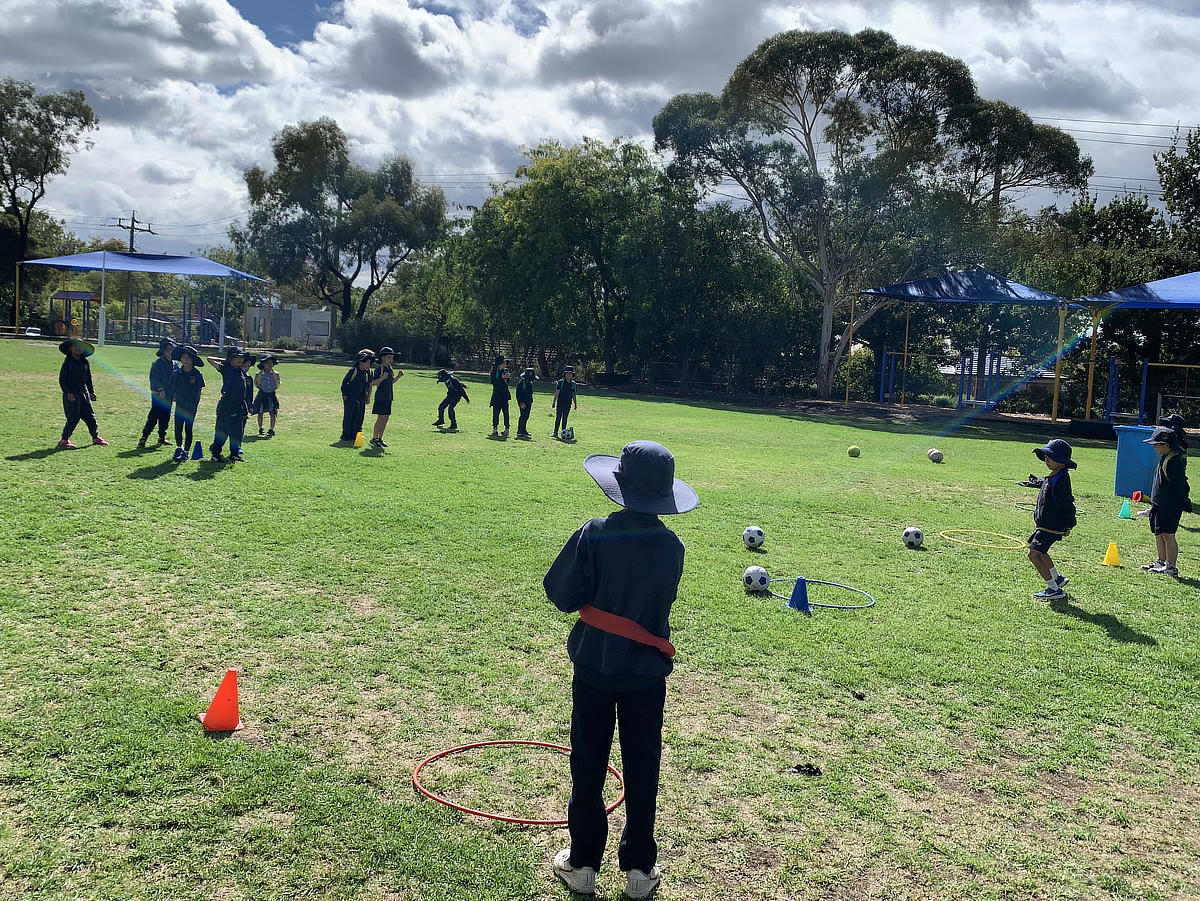
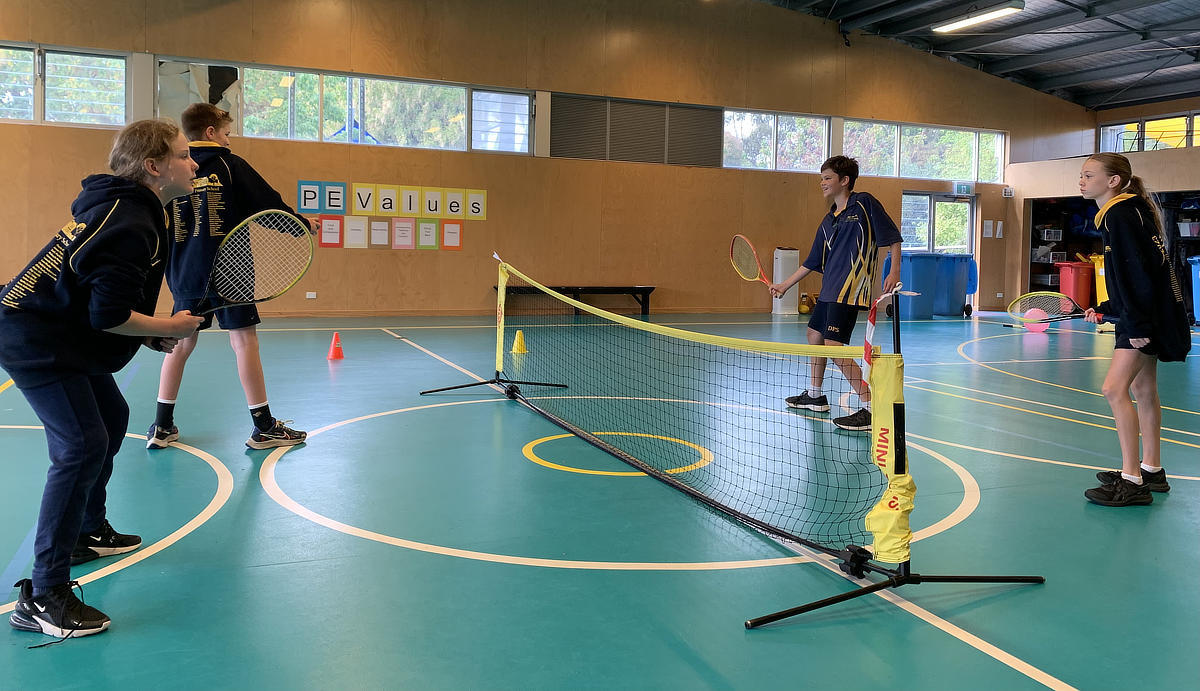
French
The purpose of French classes will be to engage the students in meaningful French communicative activities, encouraging a positive attitude towards learning languages as well as an appreciation of and a curiosity to learn about other cultures. Students will participate in speaking, listening, reading and writing using the French language. Students will be encouraged to risk takers and speak in front of others. Students will learn to greet and farewell another person. The students will engage in simple dialogue where they may express their likes and dislikes. Students will learn their colours, numbers, and basic classroom directions.
Learning Languages
- extends literacy repertoires and the capacity to communicate; strengthens understanding of the nature of language, of culture, and of the processes of communication
- develops intercultural capability, including understanding of and respect for diversity and difference, and an openness to different experiences and perspectives
- develops understanding of how culture shapes and extends learners’ understanding of themselves, their own heritage, values, beliefs, culture and identity
- strengthens intellectual, analytical and reflective capabilities, and enhances creative and critical thinking.
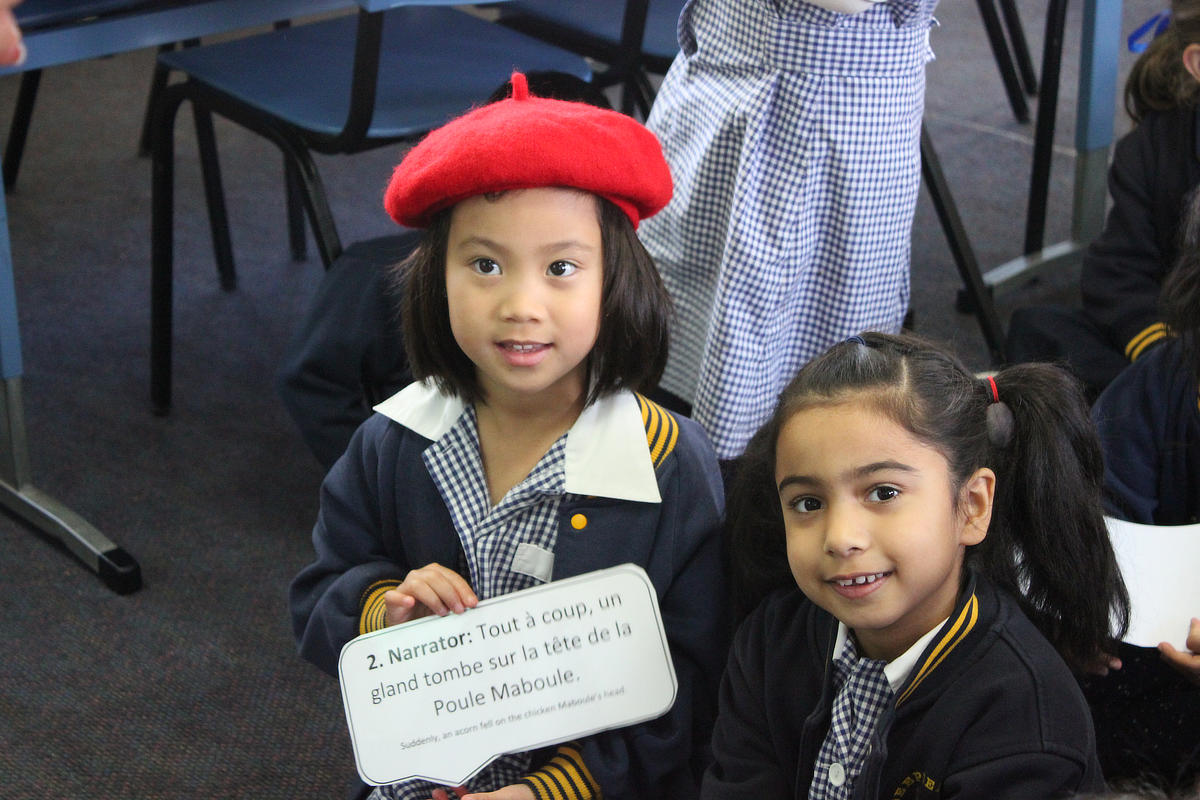
Visual Arts
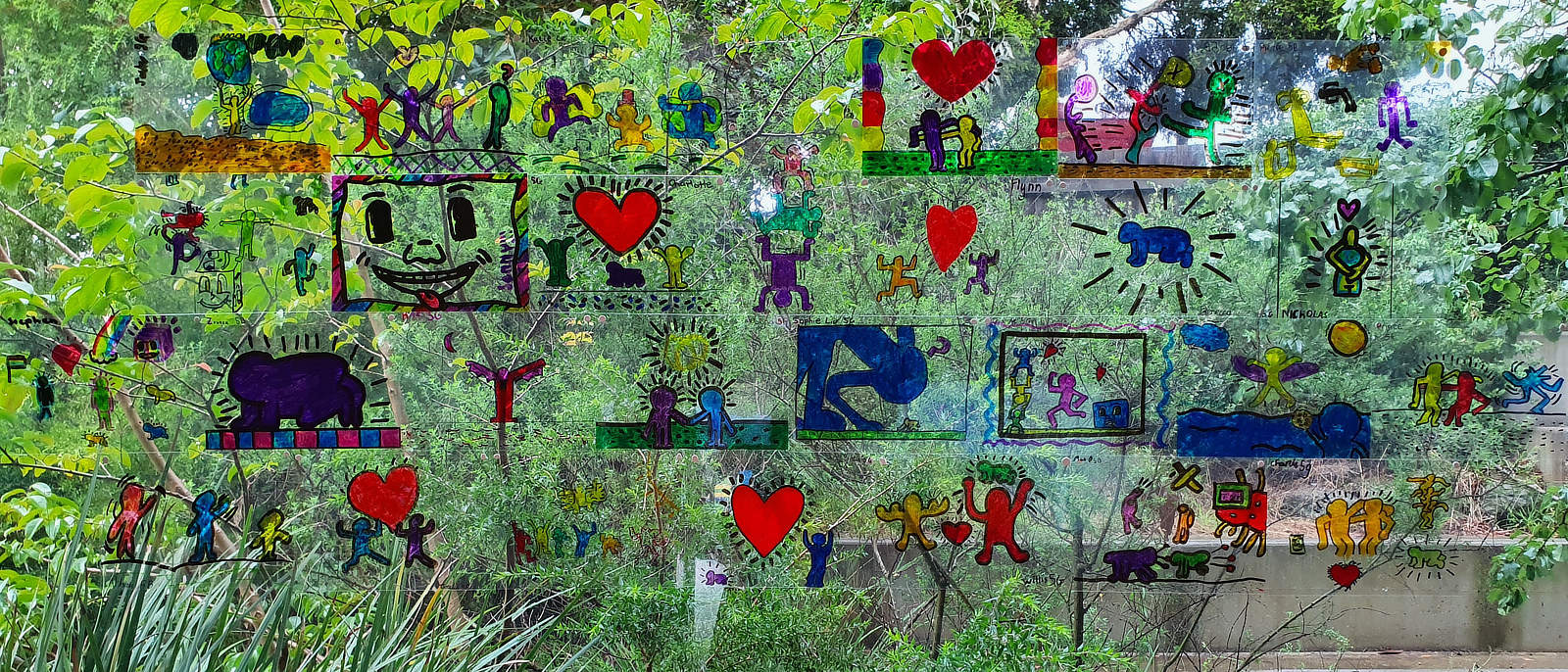
Students at Deepdene Primary School are actively involved in creating visual works by exploring and developing ideas during their weekly Art sessions. The program equips students with new skills in visual communication to tell us about themselves and the world around them. Students are encouraged to experiment and problem solve during the art making process, and learn that the process is often more important than the final product.
Students begin to identify the Art Elements of colour and value, line, shape, texture, space and form as building blocks in their art making. During their Art sessions students explore these through the skills and techniques of the Areas of Art – drawing, collage, painting, textiles, printmaking, construction and modelling. As students progress through the year levels, they build on their understanding of the ways the Art Elements can be used and combined to express ideas through the Art Principles, including the use of contrast, repetition and pattern, movement and emphasis.
During Art sessions, students have the opportunity to view and discuss the works of a variety of past and contemporary artists. They discuss art works using terminology with an understanding of setting, content, scale and media. Students are given the opportunity to respond to visual works in a personal way by looking at and talking about their own work and the work of others. Everyone’s artwork is worthy of recognition.
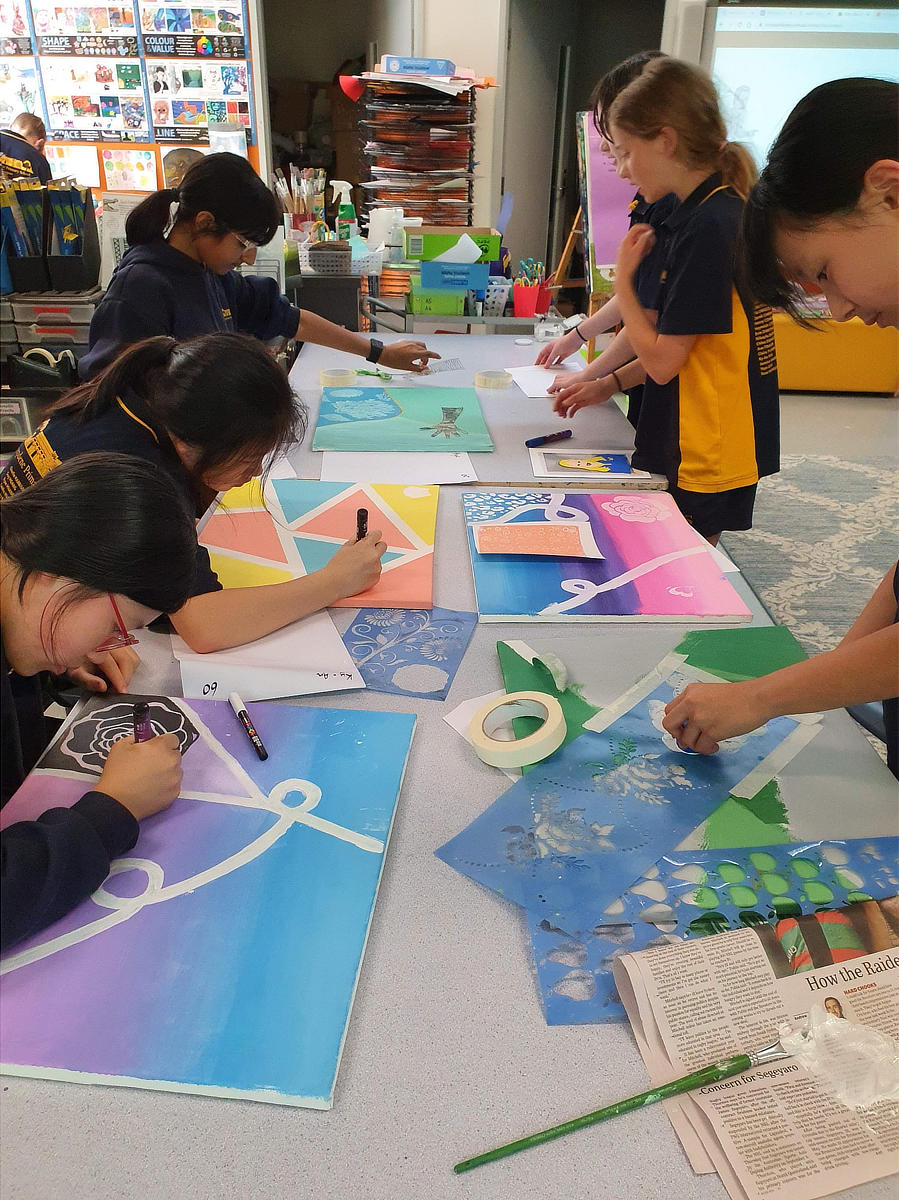
STEM
STEM education is a teaching and learning approach where the curriculum areas of Science, Technologies (including Engineering and Digital Technologies) and Mathematics are integrated, enabling a deeper engagement in each of the disciplines. STEM education aims to bring these curriculum areas together, helping students to practise their skills of critical and creative thinking, ethical decision-making, collaboration and communication. STEM is directly related to the learning areas of: Science, Technologies and Mathematics.
The STEM program at our school will be taught by a specialist STEM teacher. It will cover all year levels and feature a design process that wil examine a wide range of real world applications for students’ evolving knowledge.

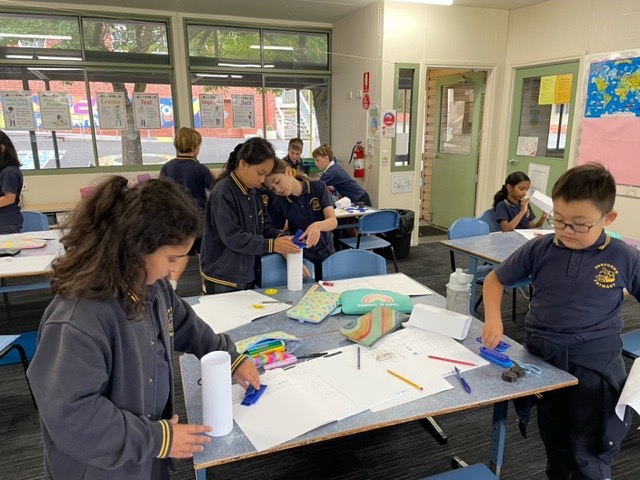
Performing Arts
The Arts have the capacity to engage, inspire and enrich all students. The Performing Arts learning area comprises four subjects: Dance, Drama, Media Arts and Music. Together they provide opportunities for students to learn how to create, design and share their imagined and conceptual ideas, emotions and experiences. At Deepdene we have a vibrant Music and Performing Arts program that includes classroom music across the whole school, choir, instrumental lessons and class ensembles. Each class receives one 50-minute session weekly of instruction, in which they focus on both making and responding to music.
In the early years, the program involves games and activities relating to singing and ear training. Using the Kodály and Orff teaching methods, students are able to experience and gain knowledge of the fundamental concepts of music through aural, kinaesthetic and visual styles of learning. Students learn a repertoire of music, they use familiar songs to build their knowledge of musical concepts and terminology in a sequential and developmentally appropriate level. More information about the Kodály approach to music education can be found at http://www.kodaly.org.au.
In Levels 3 and 4, students will be introduced to the recorder and formal music notation, where they are given weekly instruction on playing, performing and recorder technique. Students will engage in playing and accompanying simple songs. They will create simple rhythmic and melodic patterns using the recorder, percussion and Orff instruments.
In Levels 5 and 6, students play instruments in classroom ensemble situations and use traditional and technological methods to notate their musical understandings. They have access to a variety of musical instruments and enjoy the opportunity to compose and create their own music, as well as learning about music from around the world and through history. Students are asked to bring the instrument they are learning to each class. Orff instruments are also used to accompany instruments the students have brought to class.
At Deepdene there are lots of opportunities for students to perform for their peers and wider school community. Students are encouraged to participate in the choral program. Festival Singers, Instrumental students and ensembles perform at ‘Deepdene on the Green’ concert, assemblies, open days, evening concerts and at various community events.
Deepdene Festival Singers Ensemble Program
Students from Level 4 to Level 6 can be involved in the Deepdene Festival Singers Ensemble which performs at various events and in the wider community.
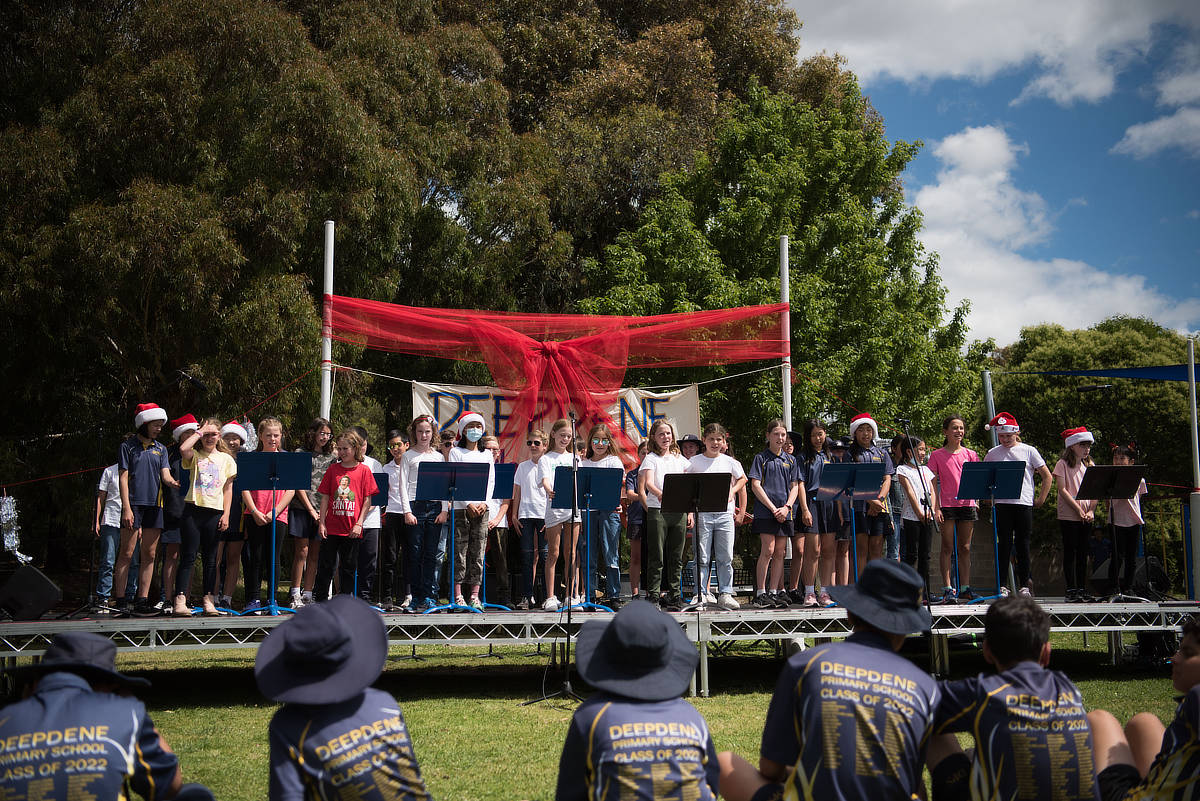
Instrumental Music
Instrumental Music Lesson Program
The instrumental music program aims to create a fun environment in which students can develop a passion for music. Instruments on offer include flute, cello, drums, trumpet, violin, viola, guitar, piano, saxophone, clarinet, trombone and voice. The program is administered privately with a team of highly qualified and dedicated tutors. Students can perform at an informal ‘soiree’, and those making particularly good progress are invited to perform at school assembly. Lessons take place at fixed times during school hours but are scheduled to avoid clashes with specialist subjects. The program is open to students in Level 1 and above, with fees due at the start of each term. For more information contact dpsmusic@potsandpans.net.au
Ensemble Program
Instrumental music students from Levels 3 to 6 are encouraged to participate in the Ensemble Program. Several ensembles are on offer, including Guitar Ensemble, Percussion Ensemble, Chamber Strings, Symphonic Band and Jazz Band. Catering to a range of abilities, the ensemble program helps music students gain confidence, develop skills and build friendships across year levels. Best of all they experience the pure thrill of making music in a group. In addition to two major concerts a year, opportunities to perform include inter-school competitions, festivals, open days and school assemblies. For more information contact dpsmusic@potsandpans.net.au
Support Programs
Tutor Learning Initiative
Deepdene Primary School offers a Tutor Program which is a targeted learning support program. The goal of this program is to empower students to embrace independent learning by providing them with additional and personalised support to promote their confidence and self- esteem.
The Tutor teacher,works both in the classroom and in a small group setting to assist the students with their needs and in accordance with the learning that is already taking place in the classroom. The classroom teacher also works in conjunction with the Tutor to set individual learning goals and these goals are reviewed as the program continues.
Student selection is a careful and thorough process driven by analysis of student learning data.
The students in the Tutor program are involved in an intensive 50 minute session, twice per week which includes:
- explicit teaching in Reading and Writing to practise their skills of literacy
- opportunities to complete tasks that they are successful in so that they feel confident to try a new task
- Interactive games that would support their learning.
English as an Additional Language (EAL)
English as an Additional Language is a support program for students who speak another language at home and need to learn the English language to succeed at school. In EAL, students learn about English, and use English to learn the content and topics covered in other learning areas. They have different learning needs from students who speak English at home and as their first language.
EAL teaching aims to teach English using the mainstream curriculum as the context.
The EAL students at Deepdene Primary school are involved in an intensive 50 minute session, twice per week which includes:
- listening to stories being read to them in English
- using specific vocabulary to write about familiar objects or events
- practising reading fiction and non-fiction books aloud with fluency and comprehension
- revising grammar concepts such as past and present tense, nouns, pronouns, adjectives, verbs, etc
- using ICT such as computers, iPads and Smartboards to play interactive games which reinforce the language concepts covered.
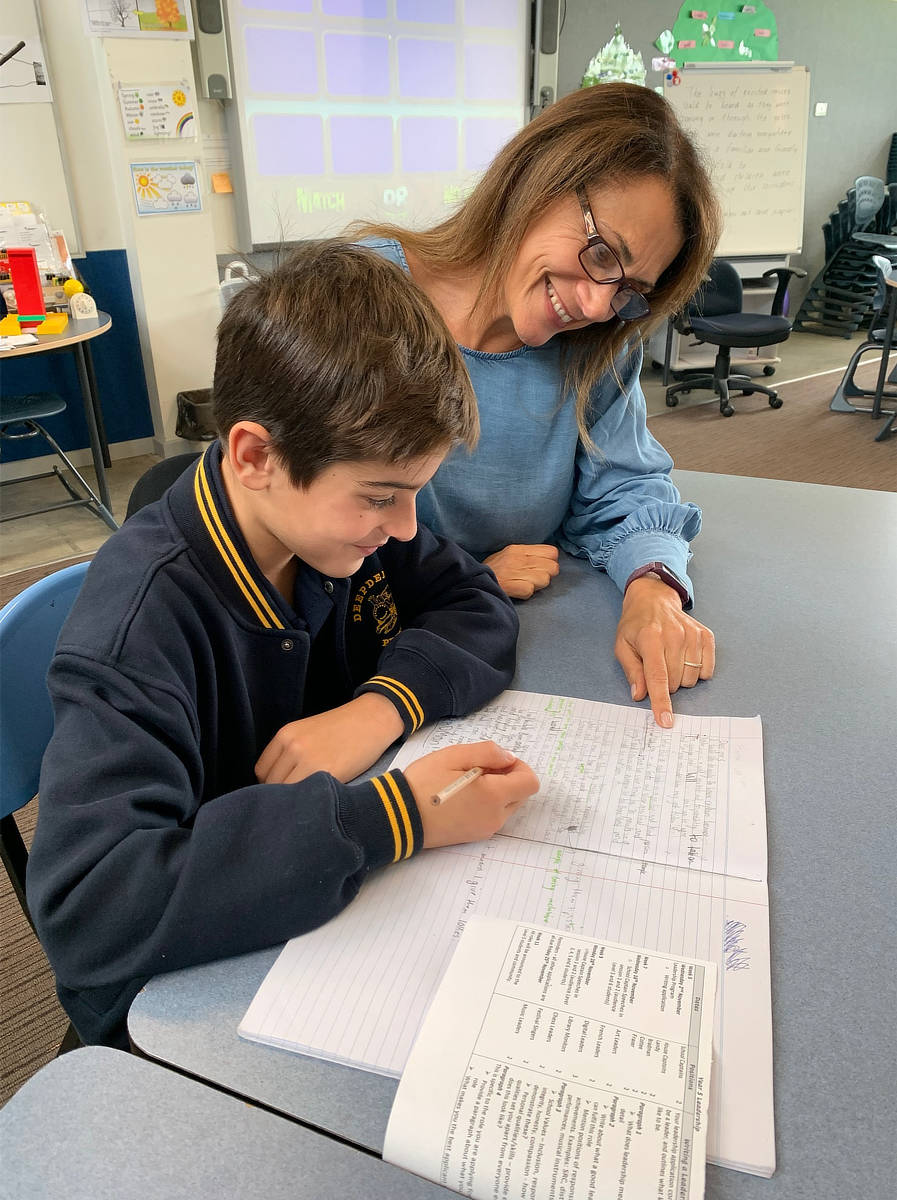
Facilities
Outdoor Learning Spaces
We have a variety of outdoor learning spaces around the school, shaded with trees or covered with shade sails. These areas provide an opportunity for students to take learning out of the classroom and into their surroundings.
Deepdene’s sensory garden was built in 2022. The sensory garden was carefully designed to invoke and indulge all five senses using plants and décor, resulting in an immersive experience. It offers students a safe environment to relax, unwind, and develop imaginative thinking.
Our synthetic courts were updated in 2022 and include a multi-purpose basketball court, four-square markings, a running track, and hopscotch. These open areas provide space for a range of PE, well-being, and other activities.
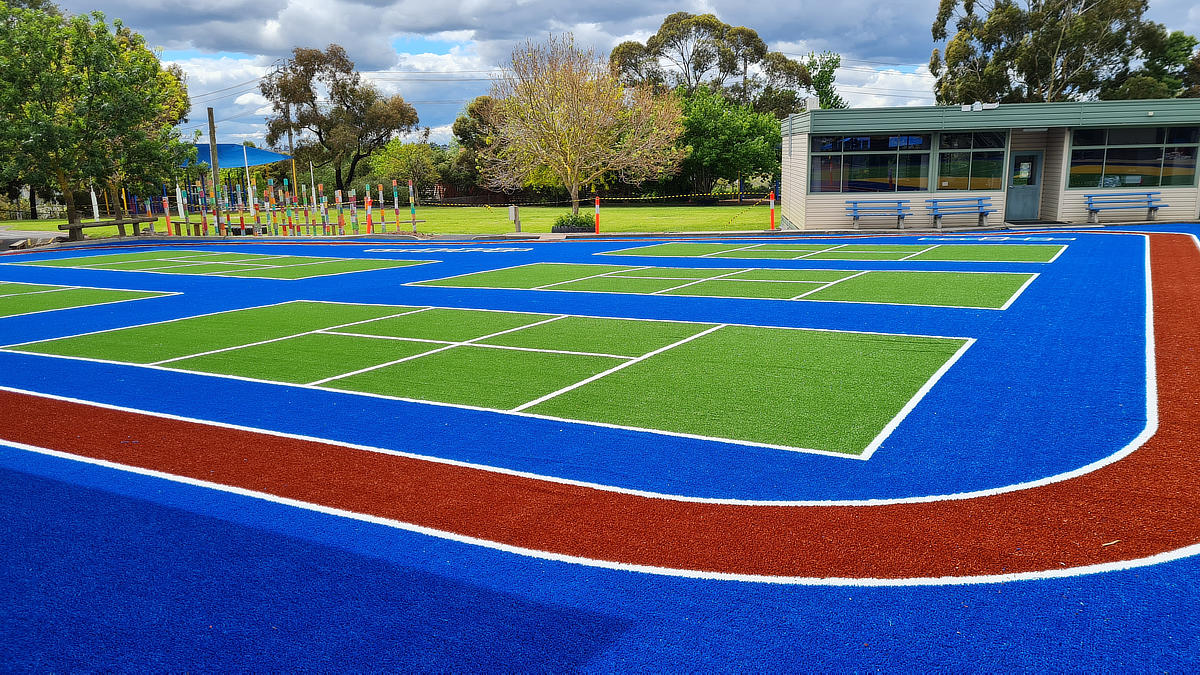
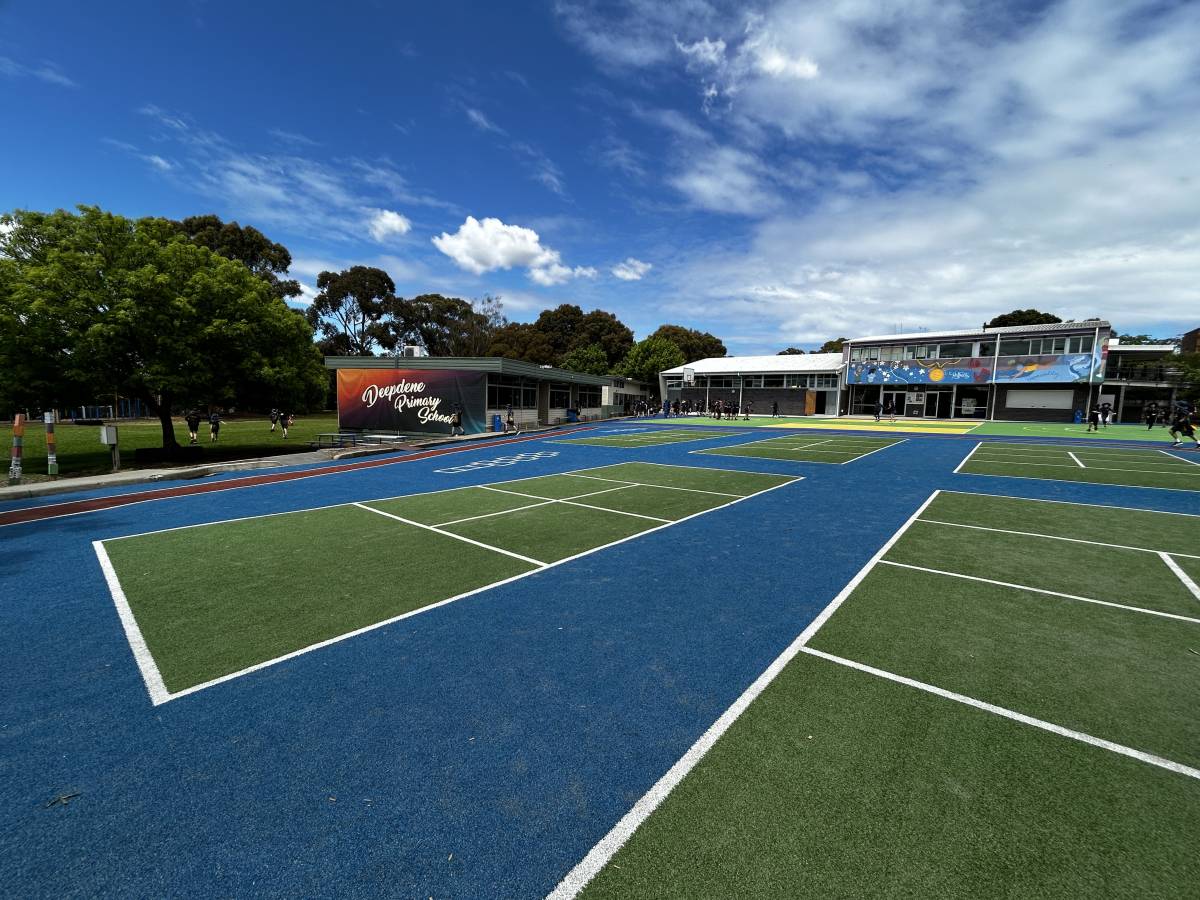
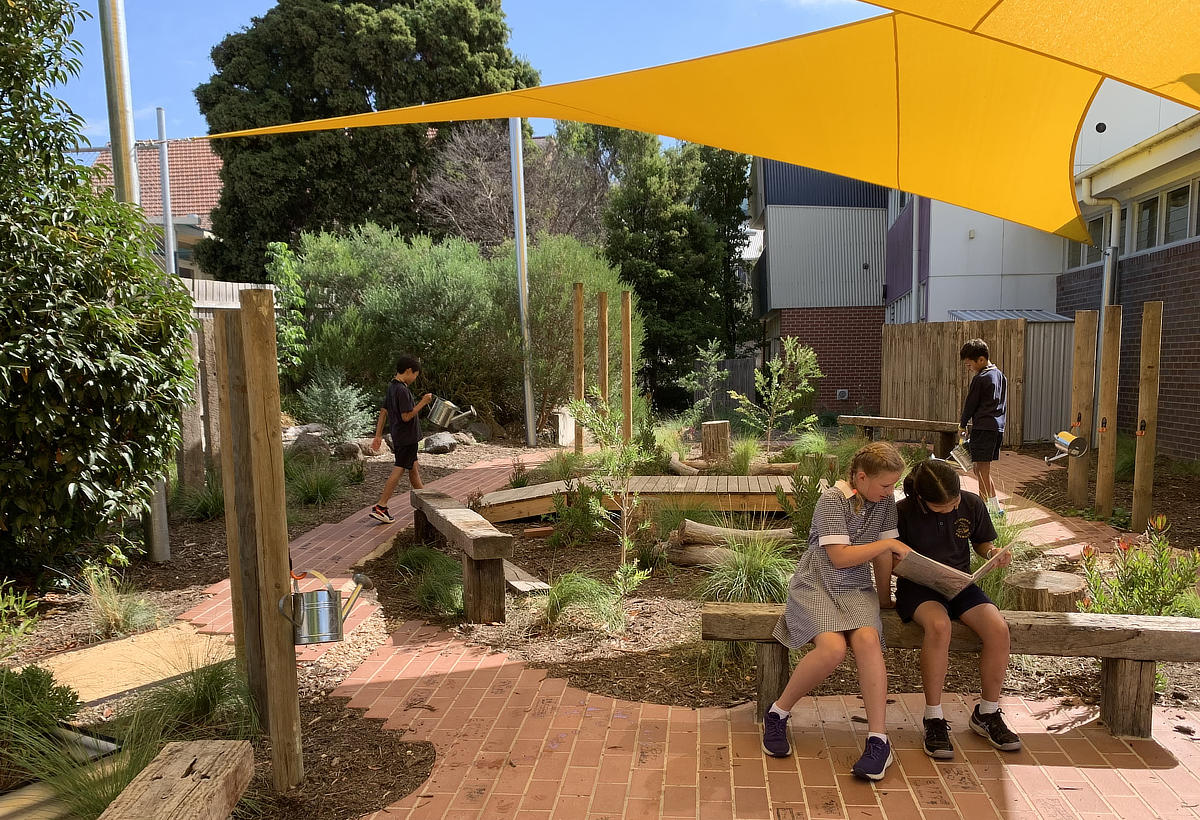
Gym
Our Gym was erected in 2011 and hosts a variety of activities including our PE program, lunchtime clubs, assemblies and performances. We have recently installed a temperature controlled heating and cooling unit.
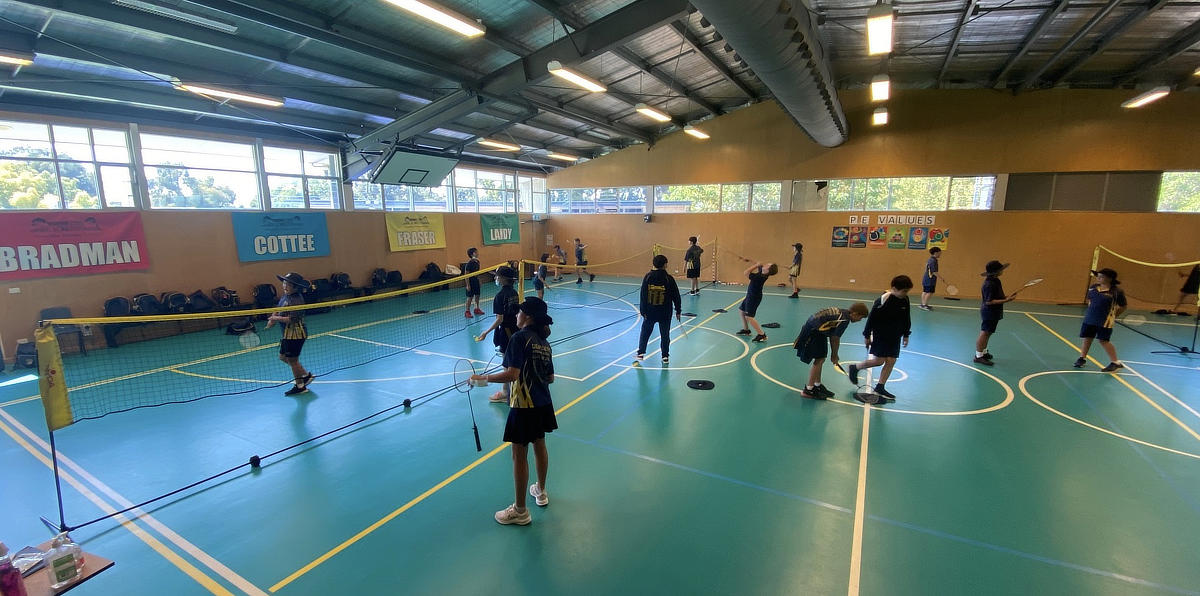
New Playgrounds and outdoor spaces
Our playground equipment has been upgraded throughout 2024. We now have a new area for our Foundation students, Year 1 & 2 playground and Ninja course.

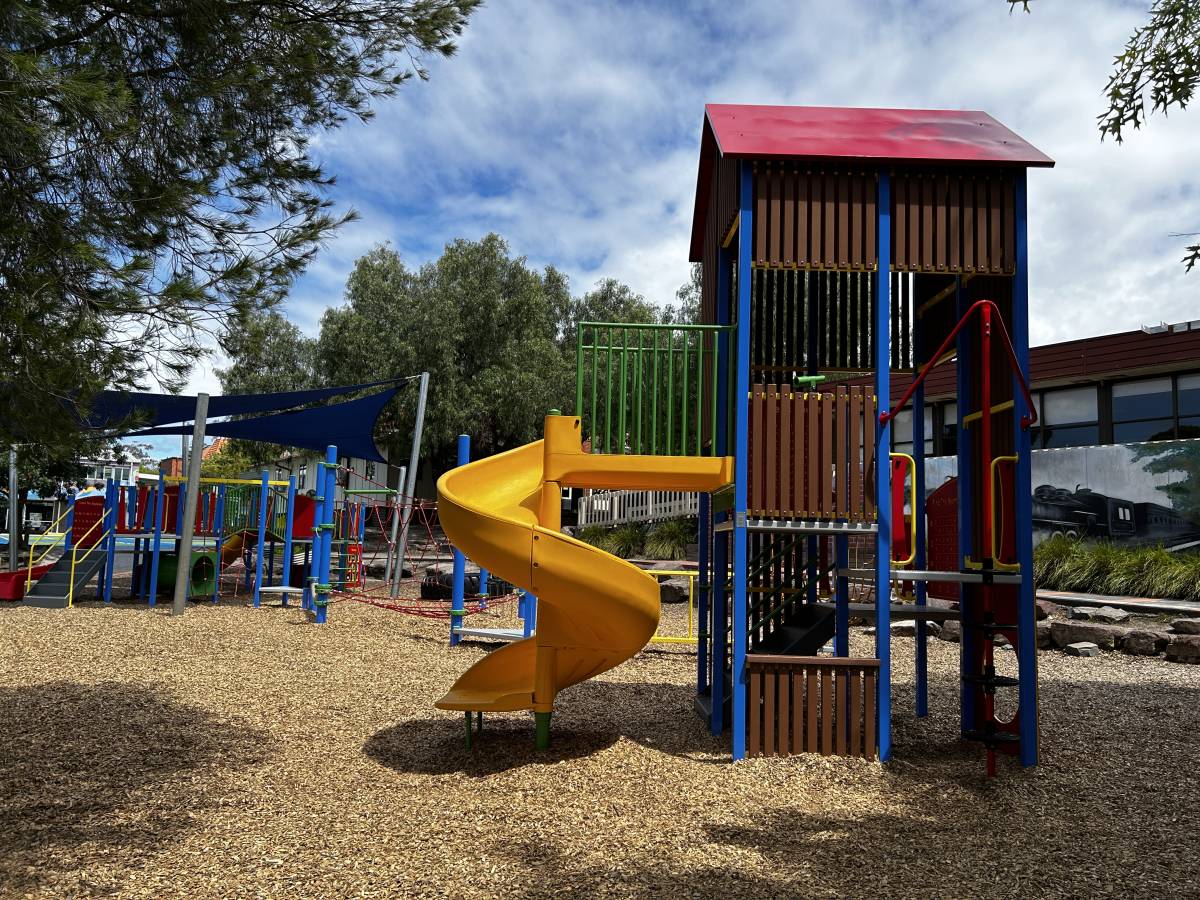
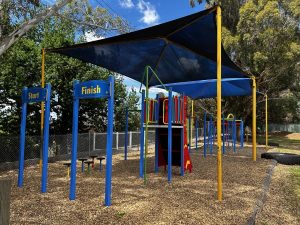
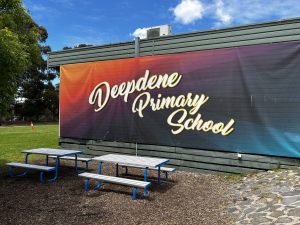


Library
Deepdene Primary School has a well-resourced Library, which is stocked with resources for both educational and leisure purposes. Students attend regular weekly library sessions which develop library skills, promote literature studies, and enable students to borrow resources, both for leisure as well as research purposes.
The Library program aims to introduce students to a wide variety of literature and to promote reading as a worthwhile leisure activity. The children have a lot of fun exploring literature in its variety of forms. Children are strongly encouraged to develop consistent borrowing habits. A developmental program of library skills, basic research and study skills is taught.
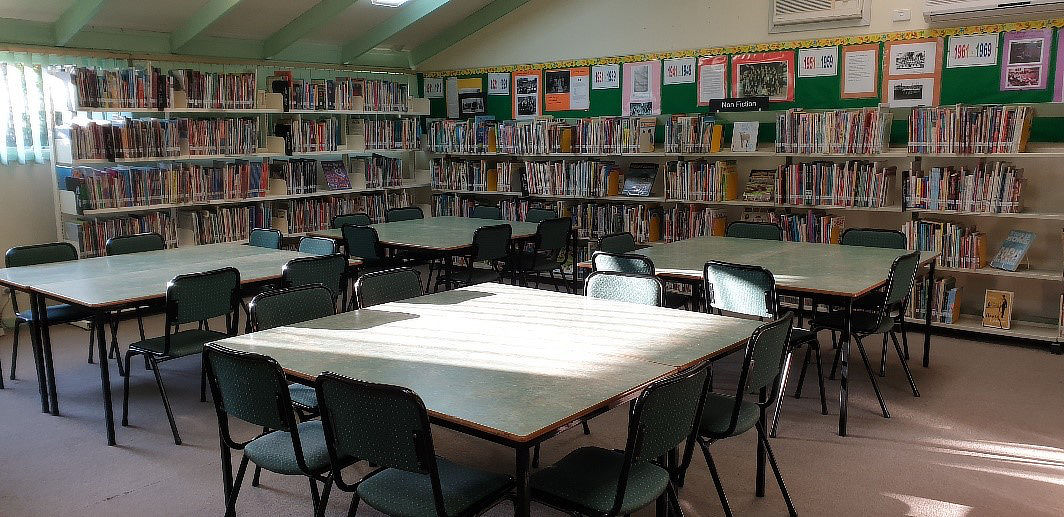
The Library is also available for research purposes by class and groups of students when normal library classes are not in operation. It is fully computerised with the installation of the Access-It library management system.
The Library has an excellent collection of resources consisting of:
- Non-fiction – Factual books on various topics
- Fiction – Novels, chapter books and graphic novels for readers of all levels
- Picture fiction – Picture storybooks
- Reference – Sets of encyclopedias for use within the library and for research purposes
- Teacher reference – Resources to assist the teaching staff in various aspects of their work
- Others – These include audio cassettes, audio CDs, DVDs, big books, posters, and maps.
The Library also subscribes to the following online resources :
- ClickView – provides access to thousands of digital educational videos, mapped to the Australian Curriculum.
- StoryBox Library – showcases Australian children’s books, read by a diverse range of local storytellers, and
- World Book Online – provides online access to the World Book encyclopaedia, atlases, and timelines.
These websites can be accessed by all Deepdene families at home.
Digital Technologies
Information Communications Technology (ICT) is the effective integration of a range of technologies across all areas of schooling – to support student learning. These technologies encompass a range of media, tools, environments and resources – including rich, interactive, online resources.
Our school takes great pride in the wide variety of ICT technology available to students in all areas of the school. As well as each classroom having an interactive whiteboard, access to class sets of notebook computers and tablets, at least 5 classroom computers, we also have a well resourced computer labs which the students visit each week to learn and develop skills which are then utilised in reading and maths activities in the classrooms.
Deepdene Primary School has created an environment where the use of ICT is regarded as an integral part of our everyday practices and administration management. We recognise the future impact of ICT on our students’ lives, therefore encouraging our students and staff to develop their skills and abilities through promoting intellectual and physical competence in communicating and promoting problem solving strategies. We also strongly support our students and staff to take increasing responsibility for their own learning.
